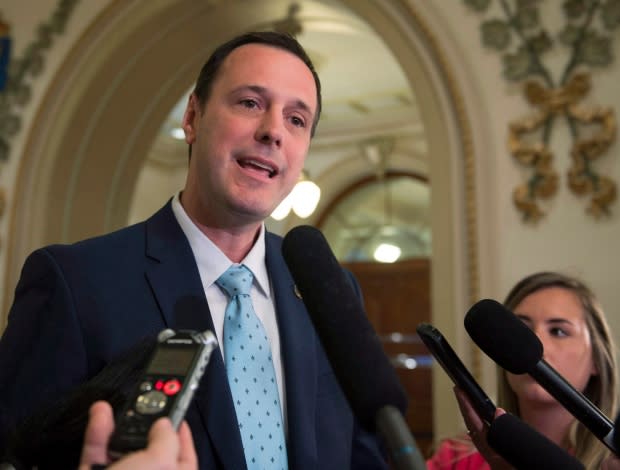CAQ government has no plans to change privacy laws in light of Concordia report on sexual harassment
Quebec's Education Ministry says it has no immediate plans to change the law when it comes to disclosing to complainants the outcome of investigations into allegations of sexual harassment by professors.
Right now, the law prohibits universities and other post-secondary institutions from telling students who lodge a complaint against a professor what, if any, consequences the professor faced.
A recent "climate review," commissioned by Concordia University after a flurry of harassment allegations in the English department's creative writing program, recommended changing that law so students could learn if their alleged harasser has been sanctioned, fired or exonerated.
Francis Bouchard, a spokesperson for Education Minister Jean-François Roberge, responded to the recommendation in a brief email this week, nearly two weeks after CBC first inquired about it.
"We take note of the observations in the report. In the immediate future, however, our priority remains that each institution has a policy to prevent and fight sexual violence and that it be in effect for next fall," said Bouchard.
Frustrating for students
The Concordia report, authored by retired Quebec Court of Appeal justice Pierrette Rayle and an outside consulting firm, took issue with one of the provisions in Bill 151.
That law, passed in 2017 by the previous Liberal government to prevent and fight sexual violence in higher education institutions, states the outcomes of investigations cannot be shared with complainants due to privacy and confidentiality considerations.
The authors said they regret that legislators "did not go so far as to relieve universities from their obligations of privacy and confidentiality regarding employment matters following allegations of sexual violence."
"We understand that students and complainants feel frustrated when they are not provided with all of the information following the conclusion of a complaint or an investigation," the report said.
Concordia University said it agreed with that recommendation and wants to see the law changed.
'Delicate' issue
Hélène David, the former Liberal education minister who drafted the legislation, told CBC that particular clause in the law is 'delicate,' but she said all parties in the National Assembly agreed on it after a thorough discussion.
David said allowing complainants to learn the outcome of investigations would mean changing privacy laws and numerous collective agreements with professors' unions.

"We couldn't go further than that because of those complexities," said David. "I know people are discussing that at colleges and universities, but I don't think we could go further."
Connor Spencer, the national chair of a group called Students for Consent Culture Canada, said that response is particularly frustrating.
"Bill 151 is kind of meaningless until they adapt other provincial policies accordingly, so that Bill 151 can be properly implemented," Spencer told CBC.
'Absolutely crushing'
Spencer said not being told the outcome of investigations into harassment complaints is devastating for students who come forward with complaints about deeply personal and traumatic experiences.

"It is absolutely crushing. I honestly don't know how to describe it. It is one of the most awful things to go through or to witness with people," Spencer said.
She said complainants can end up feeling revictimized, and the trauma of not feeling believed is often worse than the original harassment.
Ibi Kaslik, a Toronto author and former Concordia creative writing student who filed a harassment complaint last year, only learned that the professor she and another student had complained about had been exonerated after the professor's lawyer revealed it to CBC.
The university, citing privacy laws, never told her.
"We were asked our stories, and then we were shunned. We were not involved in that process. We were not made aware of anything," she told CBC last month.
Problem across Canada
Spencer said the problem isn't limited to Quebec. Several other provinces have passed laws in recent years requiring post-secondary institutions to have sexual violence policies.
In some provinces, students who file a complaint against another student are told the outcome of an investigation.
But if the complaint is against a professor, privacy laws kick in.
"I don't think provincial governments, when passing legislation, understood the implications with privacy laws," Spencer said.
She said there is a glimmer of hope in Ontario.
She said that province's Occupational Health and Safety Act may open a legal door that would allow students to learn what consequences professors found to have harassed someone faced.
"In that act, there's a definition of psychological and physical harm," Spencer said.
"They could make the argument that because of the harm a survivor would face without knowing these consequences, that it's important to their safety," Spencer said.
Spencer said she's not aware of any case in which that line of argument has been used, but she said legal experts consulted by her organization said it is a possible tack.

